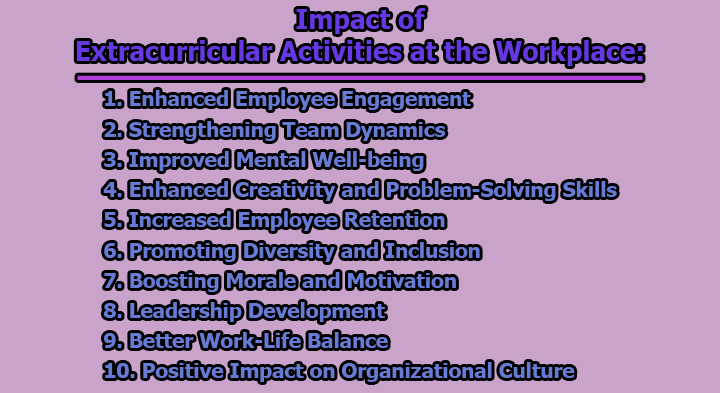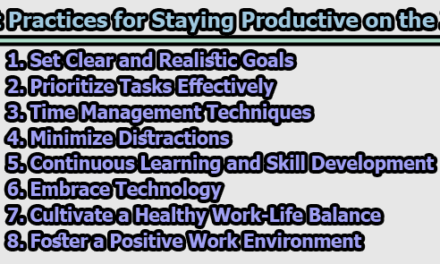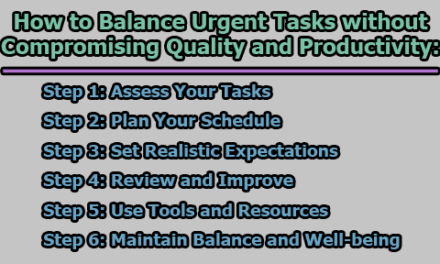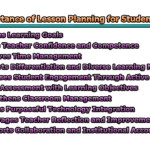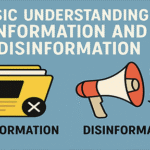Impact of Extracurricular Activities at the Workplace:
In the dynamic landscape of today’s professional world, the importance of fostering a holistic work environment is becoming increasingly evident. Beyond the traditional realms of job responsibilities, employers are recognizing the significance of extracurricular activities in enhancing employee well-being and productivity. Extracurricular activities encompass a wide array of pursuits, ranging from team sports and fitness programs to cultural events and community service. This article delves into the multifaceted impact of extracurricular activities in the workplace, exploring their influence on employee engagement, teamwork, mental well-being, and overall organizational culture.
1. Enhanced Employee Engagement: Employee engagement is more than just job satisfaction; it’s about creating a sense of commitment and emotional connection between employees and the organization. Extracurricular activities play a pivotal role in this aspect by providing a platform for employees to form bonds beyond their professional roles. Whether it’s participating in a company sports league, joining a book club, or engaging in volunteer work together, these activities foster a shared sense of purpose and community. Employees who feel engaged are more likely to invest discretionary effort in their work, resulting in increased productivity and a positive impact on the overall organizational performance.
For instance, a company that organizes regular team-building events, where employees can interact in a relaxed and informal setting, tends to witness improved collaboration during regular work hours. The relationships formed during extracurricular activities often translate into a more cohesive and motivated workforce. This enhanced engagement not only benefits individual employees but also contributes to a positive and dynamic organizational culture.
2. Strengthening Team Dynamics: Team dynamics are essential for the smooth functioning of any organization. The traditional office environment may not always be conducive to building strong interpersonal relationships among team members. Extracurricular activities provide an opportunity for employees to collaborate outside the structured confines of the workplace. Whether it’s participating in a weekend sports event, attending a team-building retreat, or engaging in creative workshops, these activities break down hierarchical barriers and promote open communication.
In team sports, for example, employees learn to rely on each other, strategize together, and celebrate victories or learn from defeats as a unit. This shared experience contributes to a deeper understanding of individual strengths and weaknesses, fostering mutual respect and trust among team members. As these positive dynamics spill over into the professional realm, teams become more efficient in their collaboration, ultimately leading to improved productivity and the successful accomplishment of organizational goals.
3. Improved Mental Well-being: Mental well-being is a critical component of overall employee health, and the workplace can significantly impact an individual’s mental state. The demands and stressors of the professional world can often lead to burnout and reduced job satisfaction. Extracurricular activities, particularly those involving physical exercise, have been shown to be effective stress relievers.
For instance, a company that provides on-site fitness classes or encourages employees to join recreational sports leagues provides an avenue for physical activity. Regular exercise releases endorphins, which are natural mood enhancers, leading to reduced stress levels and improved mental well-being. Additionally, extracurricular activities such as mindfulness sessions, art classes, or hobby clubs offer employees a break from their routine, allowing them to relax and recharge. This emphasis on mental health not only improves individual well-being but also contributes to a more positive and supportive workplace culture.
4. Enhanced Creativity and Problem-Solving Skills: Creativity and problem-solving skills are indispensable in today’s rapidly changing business landscape. Extracurricular activities provide a unique opportunity for employees to engage in activities that stimulate their creative thinking and enhance their ability to tackle challenges innovatively.
Consider an organization that encourages employees to participate in creative workshops, hackathons, or innovation challenges. These activities expose employees to diverse perspectives and unconventional problem-solving approaches. Engaging in artistic pursuits, such as painting or music, can also nurture a mindset that embraces ambiguity and encourages thinking outside the box. As employees bring these enhanced creative skills back to their professional roles, the organization benefits from a more adaptable and innovative workforce, better equipped to navigate complex problems and drive continuous improvement.
5. Increased Employee Retention: Employee retention is a key concern for organizations aiming to build a stable and skilled workforce. In a competitive job market, where employees have numerous options, providing an environment that values their holistic well-being becomes crucial. Extracurricular activities contribute significantly to employee satisfaction, which, in turn, impacts retention rates positively.
A company that invests in extracurricular programs signals to its employees that their personal development and satisfaction are priorities. This investment goes beyond salary and benefits, creating a more meaningful connection between the employee and the organization. Employees who feel supported and fulfilled in both their professional and personal lives are more likely to stay with the company, reducing turnover costs and ensuring the continuity of institutional knowledge. Moreover, a higher retention rate contributes to a more experienced and stable workforce, positively affecting overall organizational performance.
6. Promoting Diversity and Inclusion: Extracurricular activities serve as a powerful tool for promoting diversity and inclusion within the workplace. By encouraging employees to share their unique talents, interests, and cultural backgrounds, organizations create an environment where individual differences are celebrated. For example, organizing cultural festivals, art exhibitions, or hobby clubs allows employees to express their identities outside of their professional roles.
This emphasis on diversity not only enriches the workplace culture but also has a positive impact on team dynamics. When employees feel that their unique perspectives are valued, they are more likely to contribute actively to collaborative efforts. The inclusivity fostered by extracurricular activities helps break down barriers, mitigate biases, and create a workplace where everyone feels respected and appreciated, leading to a more harmonious and productive work environment.
7. Boosting Morale and Motivation: Extracurricular activities contribute significantly to boosting employee morale and motivation. When employees have the opportunity to engage in activities they are passionate about, it adds a layer of enjoyment to their work environment. Whether it’s organizing team-building retreats, celebrating milestones, or recognizing individual achievements, these activities create positive moments that contribute to a more uplifting workplace culture.
For instance, a company that acknowledges and celebrates personal milestones, such as birthdays or work anniversaries, shows employees that they are valued beyond their professional contributions. This recognition fosters a sense of appreciation and belonging, boosting morale and motivation. A motivated workforce is more likely to approach challenges with a positive attitude, increasing overall productivity and contributing to a workplace culture that encourages continuous improvement.
8. Leadership Development: Extracurricular activities provide a fertile ground for the development of leadership skills that may not always be evident in the formal workplace setting. Whether it’s leading a sports team, organizing a charity event, or taking charge of a community service initiative, employees can showcase and develop their leadership abilities outside their regular job responsibilities.
For example, an employee who takes on the role of organizing a company-wide volunteering program gains experience in project management, communication, and decision-making. These skills are transferable to the professional arena, contributing to the employee’s overall leadership development. Recognizing and supporting these extracurricular leadership experiences can result in a pool of well-rounded leaders within the organization, ready to take on additional responsibilities and contribute to the company’s long-term success.
9. Better Work-Life Balance: Balancing professional responsibilities with personal life is a perpetual challenge for many employees. Extracurricular activities contribute significantly to achieving a healthier work-life balance by providing employees with opportunities to engage in fulfilling and enjoyable pursuits outside of work hours.
For instance, companies that offer flexible schedules or support employees in pursuing hobbies and interests recognize the importance of a balanced lifestyle. This support leads to decreased stress levels and prevents burnout, ultimately contributing to higher job satisfaction and employee well-being. By acknowledging the importance of life outside of work, organizations create an environment where employees can thrive both professionally and personally, resulting in a more satisfied and committed workforce.
10. Positive Impact on Organizational Culture: The cumulative effect of extracurricular activities is a positive transformation in organizational culture. When employees engage in activities that go beyond their job descriptions, it creates a shared experience that fosters a sense of community and camaraderie.
Consider an organization that encourages employees to participate in volunteer programs or community service projects. This not only benefits the community but also instills a sense of pride and shared purpose among employees. As employees perceive their workplace as a socially responsible entity, it contributes to a positive and ethical organizational culture. An organizational culture that values social responsibility and employee well-being becomes a magnet for top talent, fostering a positive cycle of attracting and retaining skilled professionals. In conclusion, the positive impact of extracurricular activities on organizational culture is a key factor in creating a workplace that is not only productive but also fulfilling for its members.
In conclusion, the impact of extracurricular activities at the workplace is far-reaching, encompassing various facets of employee well-being and organizational success. From enhancing engagement and teamwork to promoting diversity and inclusion, these activities play a pivotal role in shaping a positive and vibrant workplace culture. As organizations continue to recognize the importance of holistic employee development, incorporating and encouraging extracurricular activities is not just an option but a strategic imperative for fostering a thriving and dynamic workforce in the ever-evolving landscape of the professional world.

Assistant Teacher at Zinzira Pir Mohammad Pilot School and College

